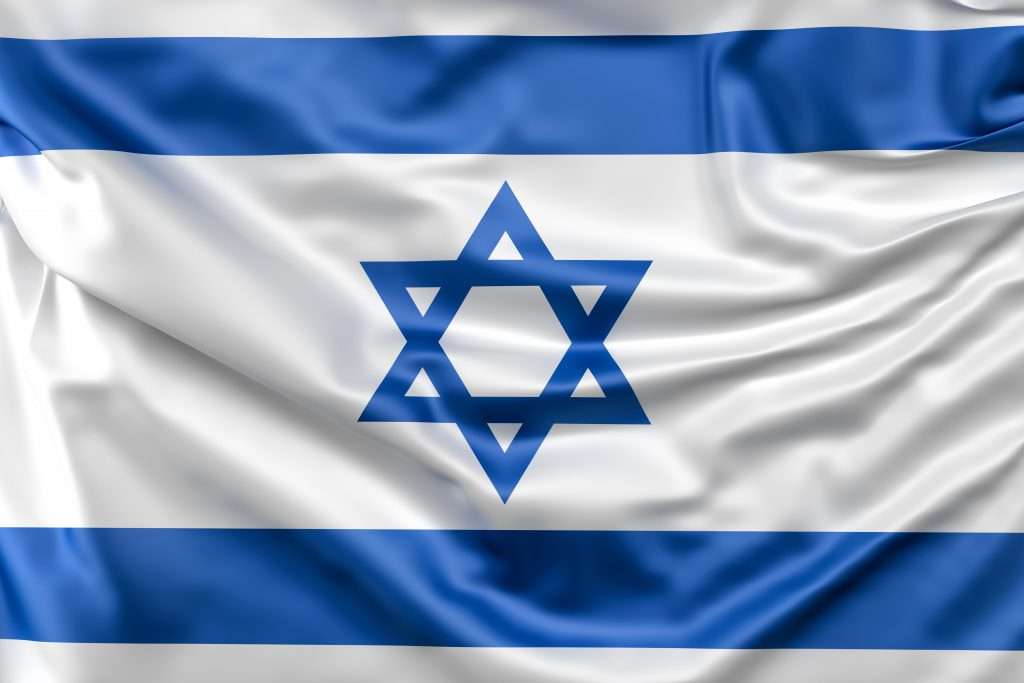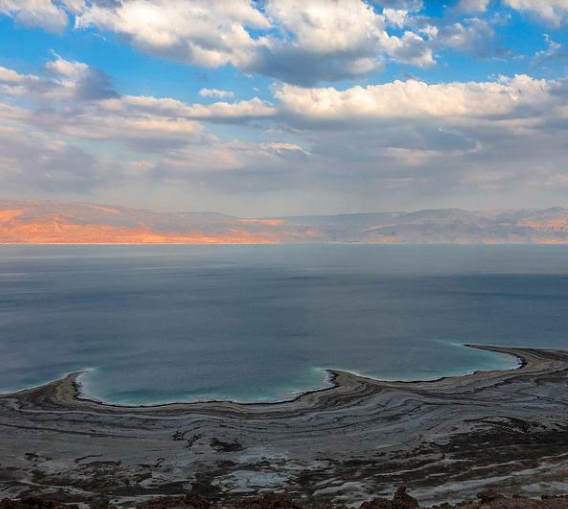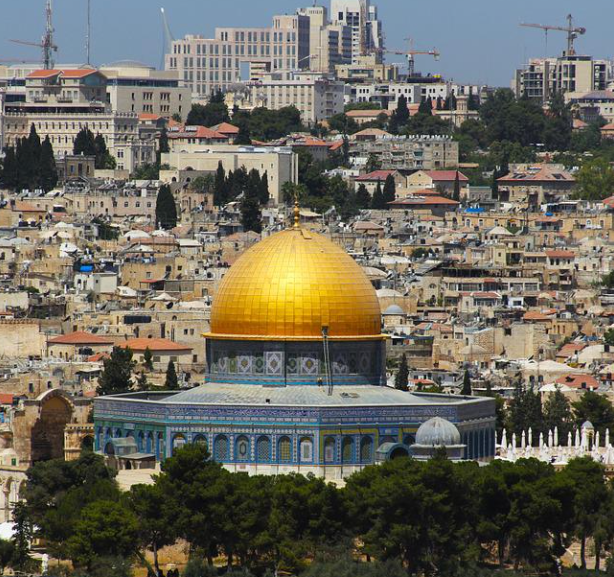Menu



Israel’s overriding attraction for any visitor is the country’s intrinsic connection with spirituality. Whether you are Jewish, Christian, Muslim or Bahai, Israel holds a special place for the adherents of these and other faiths.
For the Jewish people, Israel is the focus of Jewish identity. It is the land of the Patriarchs, Abraham, Isaac and Jacob all of whom are interred in the Caves of Macpelach in Hebron. It was the destination of the Children of Israel returning from slavery in Egypt. It is land which has marked the triumph and tragedy of Jewish history from the triumphal reigns of Kings David and Solomon during the 10th century BCE, the violent revolts against the Romans beginning in CE66 and CE 135 which would herald the dispersion of most of the Jewish people to the four corners of the world. The re-establishment of the modern state in Israel in 1948 was the realisation of a 1900 yearning of the Jewish people to be at one with the Land of Israel. Today over one third of world Jewry calls Israel home.
While Jews regard all of Israel as a Holy Land, there are special highlights which feature on a Jewish journey to Israel. In Jerusalem no Jewish visit to the city is complete without a visit to the Western Wall (Kottel) in the old city of Jerusalem . The Western Wall is the vestige of the retaining wall of the Temple built by Herod the Great over 2,000 years ago on the Temple Mount (Mount Moriah) which in turn was built on the site of Solomon’s Temple built over 1,000 years earlier the same site so chosen because it was the site of Abraham’s great test of faith when God had ordered Abraham to sacrifice Isaac and having witnessed Abraham’s readiness to obey him at the cost of his son then revoked the order.
The city is replete with remnants of past Jewish. In the Galilee the cities of Tiberias and Safed contain the tombs of great scholars, rabbinical sages and mystics. In Haifa Elijah’s cave marks the site of Elijah’s confrontation with the Priests of Baal. In Beersheba, Abraham watered his flocks. Throughout the land there are sites of ancient and modern acts of Jewish heroism, worship and endeavour.
For Christians, the land of Israel is the land of Jesus and his disciples and the birthplace of the Christian faith. In Nazareth, the Archangel Gabriele announced to Mary that her child would be the Messiah. Nazareth would the home of Jesus during his formative years. In Bethlehem (under PA rule) Jesus was born. In the Judean Desert overlooking the Dead Sea was the site of the testing of Jesus’ faith. The Galilee was the region of Jesus’ miracles and ministry and Jerusalem was the backdrop to his final earthly days. Israel had experienced period of Christian rule under the Byzantines and the Crusades. In 2000 the Christian world celebrated its bimillennial and the highlight of this commemoration was the Papal visit to Israel in March 2000. While various Christian denominations may have differing interpretations over the location and significance of specific holy sites there is unanimity within the Christian world over Israel’s significance as the birthplace of the Christian faith.
The land of Israel holds a special place for Muslims. Islam incorporates many elements of Judaism and Christianity in the faith. Most Arabs trace their line of ancestry from Abraham’s eldest son Ishmael. Muslims and Jews both regard Abraham as their common Patrirach. Although not referred to directly in the Koran most Muslims believe the Prophet Mohammed was transported to heaven by his steed from Jerusalem’s Temple Mount or as Muslims refer to it the Haram El Sharif. In the 7th Century a magnificent mosque, the Dome of the Rock was built on the site. The Dome of the Rock remains one of the most beautiful and visible symbols of the City of Jerusalem and the Islamic connection with the city. In the Galilee, the Horns of Hittin , a double peaked mountain near Tiberias marked the turning point of Crusader rule of Israel when the Muslim forces of Saladin defeated the Crusaders.in 1187. The Horns of Hittin is a major pilgrimage site to the Druze, a significant community in Israel. The land of Israel has experienced two major phases of Islamic dominance the first from 638-1017 and the longest being under the Ottomans from 1520-1917.
The Bahai faith was founded in Persia in 1844 (Modern Iran). The Bahai faith is an amalgam of many religious trends and sees itself as a universalistic though monotheistic faith. Many Bahai’s and their leaders sought refuge from persecution Persia. In 1909 the remains of Bahai’s founder the “Bab” were interred in a modest mausoleum on the slopes of Mount Carmel overlooking the small port of Haifa. Since 1909 the small port grew into a major city and the modest resting place of the Bab has been transformed into a magnificent golden domed temple surrounded by one of the world’s most magnificent gardens comprising of beautifully landscaped terraced gardens that ascend Mount Carmel from near the Haifa port to the summit. The terraced gardens were opened in May 2001 in the presence of almost 4,000 Bahais from all over the world. Haifa is recognised by all 5 million Bahai’s as the international headquarters of the the Bahai faith.
Whether you are an active adherent of the world’s monotheistic religions or not it is difficult not to be spiritually affected by a land which is the focal point of the faith of half the world’s people. Jerusalem especially has an aura which permeates the soul of almost everybody who experiences the city and its surroundings. The stark landscapes of Israel’s deserts, the verdant hills of the Galilee, the turquoise jewel of the Sea of Galilee, the canyons of the Judean Desert and the silent salt encrusted expanse of the Dead Sea all combine to provide an inspirational natural setting for humanity’s spiritual connection on the Land of Israel.
Every year more and more Australians and New Zealanders travel to Turkey and Europe to pay homage to the ANZACs which formed such an important part of the common heritage of our two countries. With the 90th Anniversary of ANZAC, the level of awareness of the ANZAC tradition will reach its zenith.
One of the most significant chapters of the ANZAC story was etched on the World War I battlefields in Israel in which the ANZACs played an instrumental role in driving the Ottoman Turks out of what is now Egypt, Israel, Jordan and Syria. In November 1917, 800 light cavalrymen of The Australian Light Horse brigade supported by New Zealand infantry led the last successful horse cavalry charge in world military history in the face of machine gun and artillery fire to oust the Turks from their stronghold in Beersheba. Had the charge failed the British forces under General Allenby were prepared to withdraw to Egypt and the history of the Middle East would have been irrevocably altered.
The Beersheba charge enabled ANZAC forces to spearhead the entry of the British army into Jerusalem in 1917. Australian and New Zealand forces fought battles all over the land which is now Israel. These ANZAC military deeds were an integral link in the chain of historical events which finally led to the establishment of the state of Israel in 1948. Sadly, many ANZAC soldiers died in these victorious campaigns, many of them are buried in Commonwealth cemeteries in Israel. ANZAC forces, in conjunction with Palestinian Jewish volunteers in the British army also played an important role in the allied war effort in World War II and many were stationed in Israel to eventually fight in campaigns in Syria and Egypt. A little known fact is that Israel’s legendary former Defence Minister. Moshe Dayan lost his eye which obliged him to wear his famous eye patch whilst serving with Australian troops in the campaign against Vichy French forces in Syria during WWII.
In more recent years Australian forces in particular, have served in both United Nations and multinational peacekeeping and border monitoring assignments on Israel’s borders with Syria and Egypt. Australian SAS troops in the recent Iraq conflict have been widely credited with neutralising the threat to Israel of Iraqi scud missiles.
The deeds of ANZACs in the land of Israel are honoured in many parts of the country. There is a project to develop an ANZAC museum in the old Turkish railway station in Beersheba to honour the valour of the Australian Light Horsemen and the ANZAC troops who wrested control of Beersheba from the Ottoman Turks during World War I. A growing number of tour groups are now incorporating the ANZAC link with Israel in their tour programme and during the commemorations of the ANZAC’s 90th Anniversary Israel looks forward to welcoming Australian and New Zealand war veterans, their descendants and Australian and New Zealanders who want to walk in the footsteps of ANZACs past in a country where some of the greatest ANZAC victories were won. Travel agents and tour operators which rightly run Gallipoli tours should ensure that Israel is considered as a preferred option.
In order to work in Israel, a non-resident is required to obtain a work permit (usually B-1 visa) or hold a status other than “tourist”. To obtain work permits, Israeli employers are required to apply to the Ministry of Labour and Social Affairs and, where applicable, to the Investments Centre as well.
In order to work in Israel, a non-resident is required to obtain a work permit (usually B-1 visa) or hold a status other than “tourist”. To obtain work permits, Israeli employers are required to apply to the Ministry of Labour and Social Affairs and, where applicable, to the Investments Centre as well.
Hebrew and Arabic are the two official languages of Israel. English is the principal international language and is taught in nearly every school. Due to the diversity of the immigrant population, one can find residents who are fluent in nearly any foreign language.
Israel’s national and international telecommunications systems are among the most advanced in the world. The domestic telephone system is now fully digital. Many Israeli high-tech companies operate in the data and telecommunication sector, and provide advanced hardware and software communications solutions for companies in Israel and around the world. Intense domestic competition has given Israel some of the lowest prices in the world in the cellular and long distance service markets.
Bezeq is Israel’s national telecommunications provider, and the three major cellular services companies are: Cellcom, Pelephone and Partner (Orange).
The GSM Triband is used for mobiles and is compatible with Australian’s using a Triband mobile.
Sun-Thur 08:30-12:00 + Sun, Tue, Thur 16:00-18:00. Fri 0830-1200. Most Businesses are open 08:30-18:00 Sun-Thur and 08:00-12:00 Fri. Many take a siesta break. Jewish and government businesses close for Jewish Sabbath Fri p.m.-Sat p.m.
Australia-Israel Chamber of Commerce (WA) Inc PO Box 44 Claremont, Western Australia 6910
© 2022 Australia-Israel Chamber of Commerce Western Australia. All rights reserved.